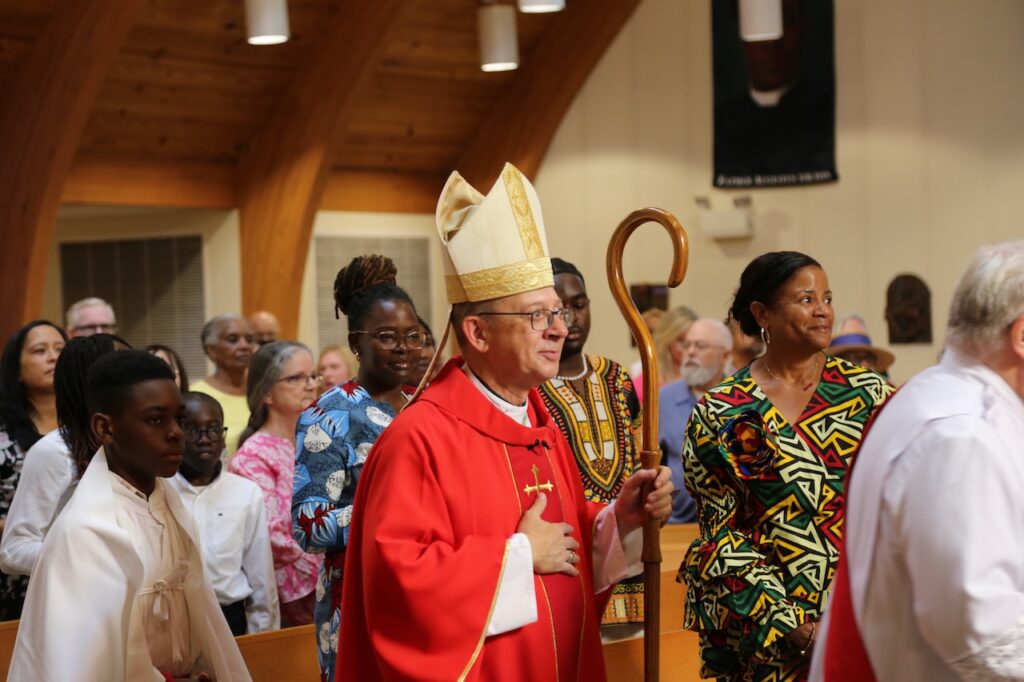Vibrant colors, a panoply of languages, and full-throated song marked the third annual African Mass at Holy Rosary, Richmond, the morning of Saturday, Aug. 24.
“It’s a joy to be with you,” Bishop Barry C. Knestout told the congregation.
Bishop Knestout was the chief celebrant and homilist at the celebration largely organized by Father Tochi Iwuji, director of the diocesan Office for Black Catholics and pastor of Holy Rosary. Concelebrating were nearly a dozen priests and several deacons from around the diocese.
“It has grown every year,” said Cheryl Curbeam, another chief organizer of the event and a parishioner of St. Elizabeth, Richmond. “This is the biggest crowd we’ve had yet.”
Choirs from St. Elizabeth; Christ the King, Norfolk; and St. Gerard, Roanoke, sang songs in Swahili, Ewe, Lingala, Ashanti, Kabiye and Igbo, as well as English and French.
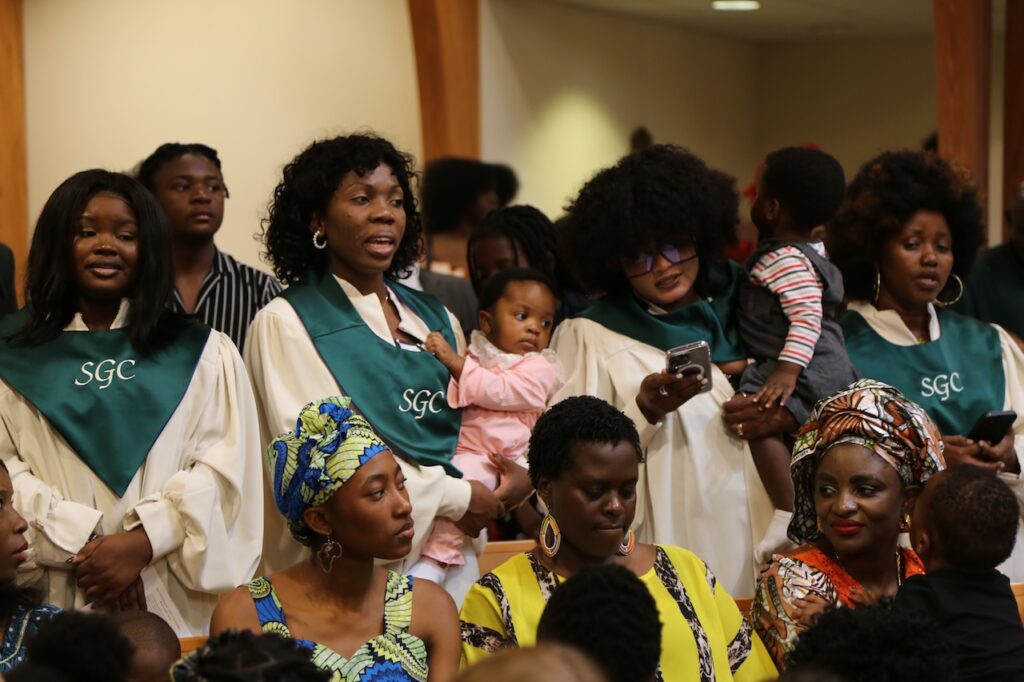
“I really enjoy [the African Mass],” said Aimerance Fariala, from the St. Elizabeth choir. “We were here last year, and I was so glad when I heard it would be here again.”
Father Tochi reminded the congregation at the end of Mass that the Eucharist is the source and summit of our faith, and that the Church is the Body of Christ.
“When we gather to celebrate, it shows that the Church is one,” said Father Tochi. “We are Catholics, and we must not forget that we are.”
A vision fulfilled
Though this was the third annual African Mass, the celebration was not without precedent before its 2022 revival.
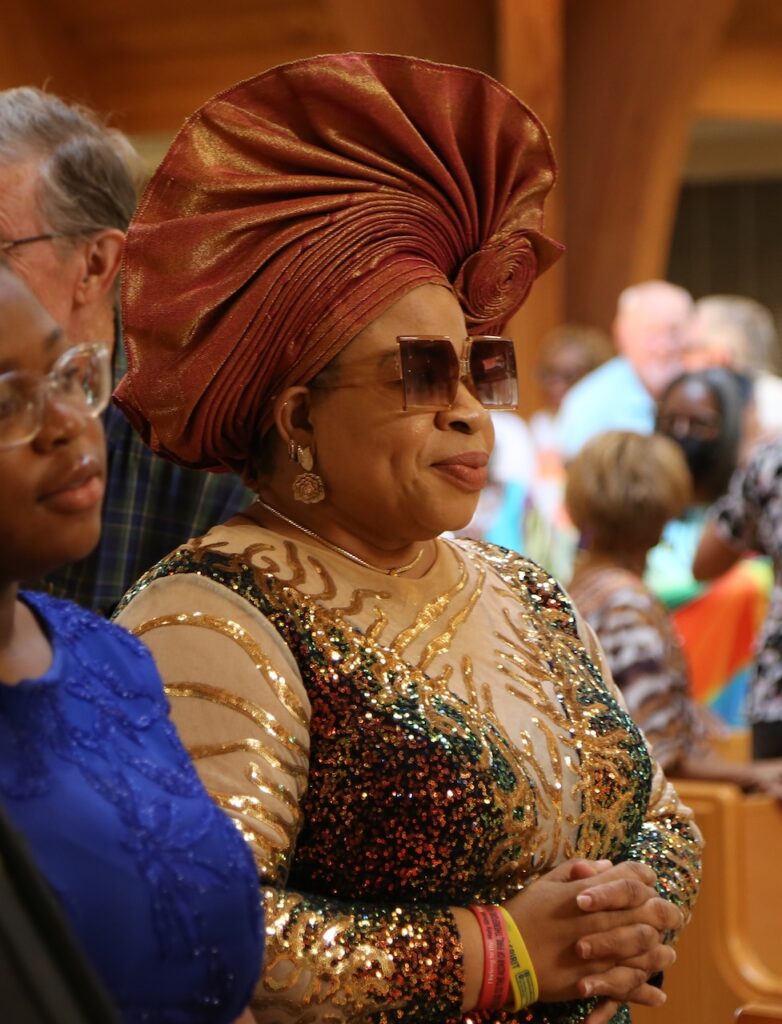
“This went on years ago,” said Eucharia Nnawulezi, a native of Nigeria who read one of the Prayers of the Faithful in Igbo. Nnawulezi noted, however, that the cultural celebration then went dormant. “Father Tochi picked it up, and now, it’s coming back.”
Deacon Charles Williams, a prominent advocate for racial justice in the Church and former director of the diocesan Office for Black Catholics, “wanted to see the African Mass revived,” said Curbeam.
Deacon Williams died in 2022, before he could see the fruits of his labor.
“This was his vision,” said Curbeam.
Many members of Virginia Catholics for Racial Justice (VCRJ), a non-profit organization established to “confront racism with love,” were in attendance.
“We were inspired by Deacon Charles Williams,” said Abby Causey, director of evangelization at Church of the Holy Family, Virginia Beach, and executive director of VCRJ.
“We love Father Tochi, and we try to support him as best we can,” Causey added. “We advertise his events in our newsletter, and we try to come to as many as possible.”
Phillip Bgwanya, a parishioner at Church of the Epiphany, Richmond, attended with his wife, Dorcas Bgwanya, both of whom hail from Zimbabwe. Phillip read one of the Prayers of the Faithful in Shona, a language native to Zimbabwe.
“The African Mass was beautiful, it was amazing,” said Phillip. “It tells us how God is, how God manifests in different people in different ways.”
In Zimbabwe, said Phillip, Mass sometimes takes as long as three hours. The entrance procession lasts for 15 minutes; the Gloria takes 12 minutes to sing.
“Before the readings, we do a procession, carrying the Bible and dancing,” said Dorcas.
“The offertory is longer, the Communion is longer, the recessional is even longer,” said Phillip. Often, the whole community gathers afterward to eat, especially on feast days, and to celebrate baptisms and confirmations.
That said, different cultures in Africa have different traditions – many of which were represented at the African Mass.
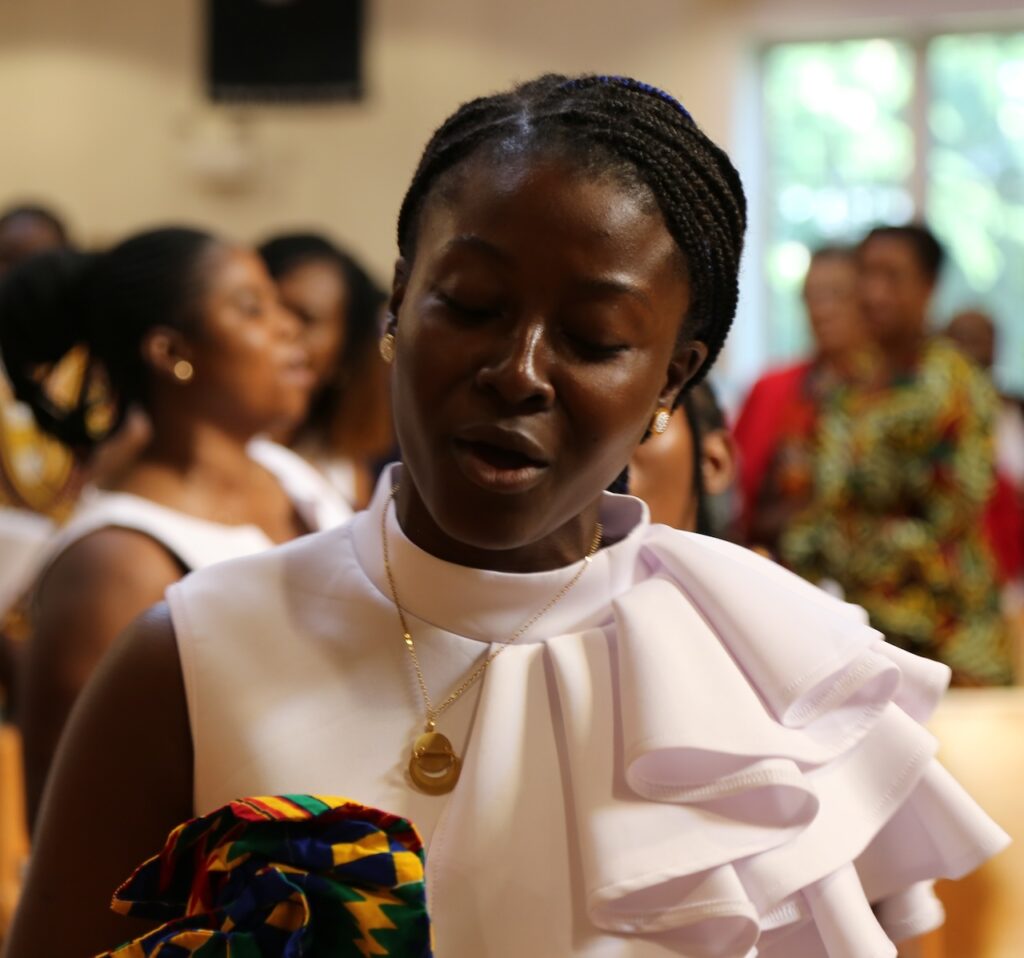
“When we sing the Gloria, we don’t sing it that way,” said Phillip, referring to the performance by the choirs at Holy Rosary. “When we sing the Alleluia, we don’t sing it that way. The way they expressed it was awesome.”
The Gloria was sung in Swahili, a Bantu language originating in East Africa; the Gospel Acclamation was sung in Lingala, native to the Congo.
Dorcas added that fried plantains, or alloco – which were a staple at the reception – were once as foreign to her as they might be to someone from Europe. Alloco originates in West Africa, in countries like Nigeria and Côte d’Ivoire, thousands of miles from Zimbabwe.
“Cultures in Africa are way different. Every country is different, from the languages to the beats of the drums,” she said.
From Nazareth to Africa
During his homily, Bishop Knestout noted that the African continent is now the region where Catholicism is growing the fastest. Zeal for the Church in Africa, he said, is now spilling out to the rest of the world.
“A hundred years ago, there were an estimated one million Catholics in Africa. Now, there are more than 300 million Catholics,” said the bishop. “Think about that.”
“The entire Catholic population of the United States is 60 million,” he continued. “The Catholic population in Nigeria, Father Tochi’s country of origin, is 30 million.”
Bishop Knestout made a comparison between Nazareth, the hometown of Jesus, and regions of Africa once conquered and colonized by Western powers. In the day’s Gospel reading from John 1:45-51, the apostle Nathanael said to the apostle Philip, “Can anything good come out of Nazareth?” to which Philip replied, “Come and see.”
“It is precisely from the humblest of places that God chooses prophets and examples of holiness,” said Bishop Knestout.
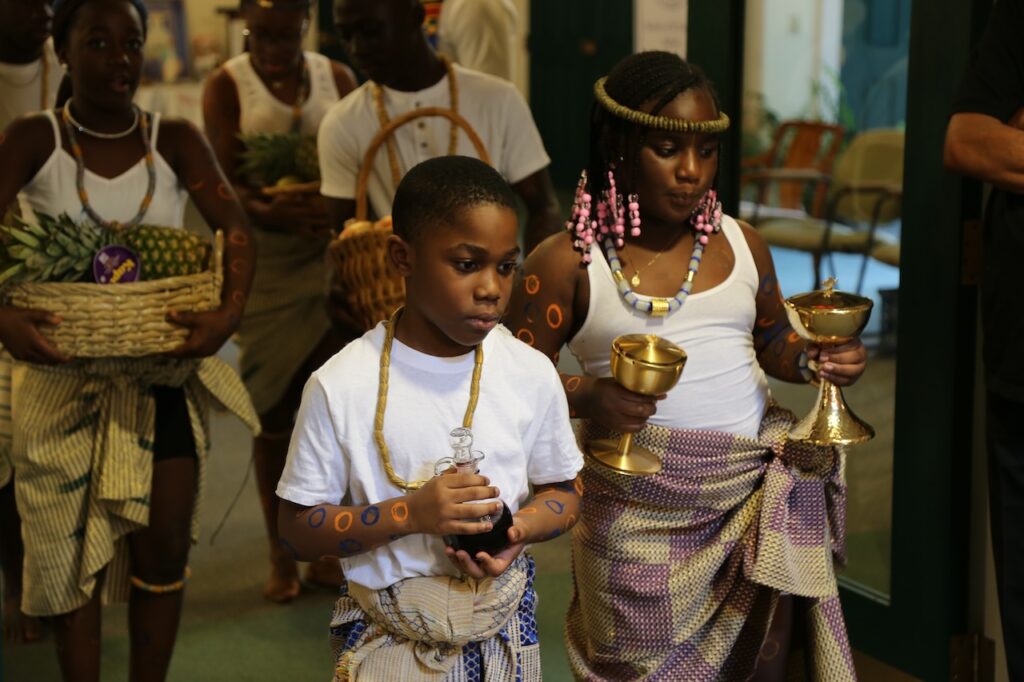
Phillip Bgwanya said he sees events like the African Mass and the recent National Eucharistic Congress – which he and Dorcas followed closely online – as expressions of the Church’s vitality.
“With such events, the Church is even more vibrant,” said Phillip. “It shows there is growth. The faith is out there. People say, ‘The Catholic Church is dying, it’s dying.’ Say that to people in Arizona, they’d be shocked. In South Korea, they’d be shocked. In Nigeria, they’d be shocked.”
Father Tochi added that the African Mass is important because it allows people from distant cultures to express love and adoration for God, through the Church, in a familiar way.
“The African Mass makes people understand that they have a place in the diocese,” he said. “They have the opportunity to express their faith in their culture.”
See more photos of the African Mass.

